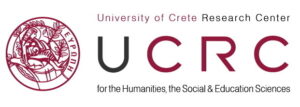The project aims to demonstrate to 21st century young Europeans how totalitarian regimes of Southern Europe have imposed on previous generations strong limitations to their freedom of expression and association. At the same time, it will underline how, despite the political and legal constraints imposed, and repression, generations of young Europeans have been able to organize, mobilize and fight against dictatorial regimes in their own countries, ultimately contributing to their fall and dissolution and the advent of modern and democratic societies.
The project focuses on the role played by generations of young Europeans in the protest and eventual breakdown of dictatorial regimes in Southern Europe during the 1960s and the 1970s. Political regimes in Portugal, Spain and Greece developed repressive institutions that limited civil liberties of expression and association, did not respect human rights, and sought to hinder the ability to mobilize and to develop activism of the younger generations of these societies. However, the younger generations were able to mobilize and fight against dictatorial regimes in their own countries, ultimately contributing to their fall and dissolution and the advent of modern and democratic societies. Throughout that process, youth resistance to dictatorship in Southern Europe was supported by European networks of solidarity that allowed activists to build alliances to strengthen opposition to totalitarianism and expose the several forms of repression in their home countries. In this sense, the history of resistance to dictatorships in Southern Europe has both a national and a European dimension.
Reflection about those historical developments seemed very appropriate to the young generations of today. They show how generations of Europeans were able to mobilize, organize and have an active civic participation even in regimes where the basic rights of expression and association were denied. They also fit into the priorities of the program, since they allow younger generations of today to understand the importance of contemporary democratic achievements, such as rule of law, civil liberties, civic rights, but also to realize how these values can be fragile and quickly dismissed in societies and countries where full democratic procedures are not respected. Through the activities promoted by this project, the younger generations of today, inspired by the historical events presented, will be able to debate, according to the objectives of the programme, concrete ways and mechanisms by which civil liberties and civic rights can be preserved and civil dialogue ensured at EU and national levels.
The FYM project is funded by the European Commission’s EUROPE FOR CITIZENS programme (Strand 1: EUROPEAN REMEMBRANCE, Project Number: 617561-CITIZ-1-2020-1-PT-CITIZ-REMEM, Grant Decision: Nr.617561). It is coordinated by Iscte – Instituto Universitário de Lisboa, while its partners are: Associação Cultural Ephemera, the University of Crete Research Center for the Humanities, the Social and Education Sciences (UCRC), Complutense University of Madrid, and the Society of Cretan Historical Studies / Historical Museum of Crete.


